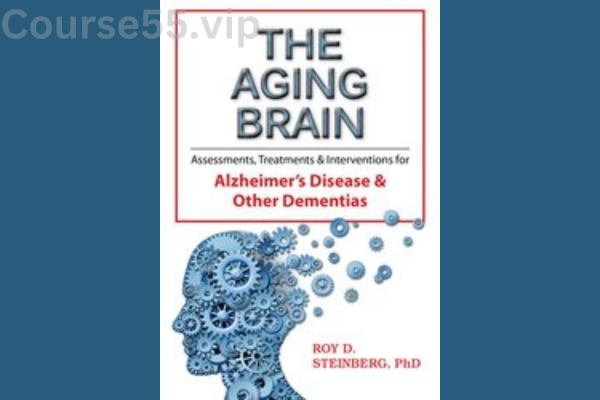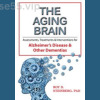-
×
 ECOM ACADEMY DAN DASILVA | MAKE 6K PER DAY WITH SHOPIFY STORE
1 × $23.10
ECOM ACADEMY DAN DASILVA | MAKE 6K PER DAY WITH SHOPIFY STORE
1 × $23.10 -
×
 What to Do in the First 90 Days of Your New Job
1 × $23.10
What to Do in the First 90 Days of Your New Job
1 × $23.10 -
×
 Black Gold Strategies by Basecamptrading
1 × $23.10
Black Gold Strategies by Basecamptrading
1 × $23.10 -
×
 The Complete Crowdfunding PR System By Salvador Briggman - CrowdCrux
1 × $23.10
The Complete Crowdfunding PR System By Salvador Briggman - CrowdCrux
1 × $23.10 -
×
 Legal and Ethical Issues in Behavioral Health in South Carolina By Lois Fenner - PESI
1 × $23.10
Legal and Ethical Issues in Behavioral Health in South Carolina By Lois Fenner - PESI
1 × $23.10 -
×
 Rewire the Anxious Brain: Neuroscience-Informed Treatment of Anxiety, Panic and Worry By Marwa Azab - PESI
1 × $23.10
Rewire the Anxious Brain: Neuroscience-Informed Treatment of Anxiety, Panic and Worry By Marwa Azab - PESI
1 × $23.10 -
×
 Attachment Focused Therapy: Trauma Related Disorders in Children & Adolescents By Daniel Hughes - PESI
1 × $23.10
Attachment Focused Therapy: Trauma Related Disorders in Children & Adolescents By Daniel Hughes - PESI
1 × $23.10 -
×
 Understanding the Needs of the Dying: Bringing Hope, Comfort and Love to Life's Final Chapter By David Kessler - PESI
1 × $23.10
Understanding the Needs of the Dying: Bringing Hope, Comfort and Love to Life's Final Chapter By David Kessler - PESI
1 × $23.10 -
×
 New Rules for Treating Trauma: Integrating Neuroscience for Resilience, Connection and Post-Traumatic Growth By Courtney Armstrong - PESI
1 × $23.10
New Rules for Treating Trauma: Integrating Neuroscience for Resilience, Connection and Post-Traumatic Growth By Courtney Armstrong - PESI
1 × $23.10 -
×
 Writing Email Copy for B2B Companies By AWAI
1 × $23.10
Writing Email Copy for B2B Companies By AWAI
1 × $23.10 -
×
 Ten Best-Ever Anxiety Treatment Techniques By Margaret Wehrenberg - PESI
1 × $23.10
Ten Best-Ever Anxiety Treatment Techniques By Margaret Wehrenberg - PESI
1 × $23.10
The Aging Brain: Assessments, Treatments & Interventions for Alzheimer’s Disease & Other Dementias By Roy Steinberg – PESI
$249.00 Original price was: $249.00.$23.10Current price is: $23.10.
SKU: C55vip.11321crVGgtxD
Category: Download
Tags: Roy Steinberg - PESI, The Aging Brain, The Aging Brain: Assessments, Treatments & Interventions for Alzheimer's Disease & Other Dementias
The aging brain: Assessments, treatments & interventions for Alzheimer’s disease & other dementias – Digital Download!

The Aging Brain: Assessments, Treatments & Interventions for Alzheimer’s Disease & Other Dementias By Roy Steinberg – PESI
Overview

An In-Depth Review of The Aging Brain: Assessments, Treatments & Interventions for Alzheimer’s and Other Dementias
As we age, numerous changes occur, particularly in the realm of cognitive function. The Aging Brain: Assessments, Treatments & Interventions for Alzheimer’s Disease & Other Dementias, authored by Roy Steinberg, is a crucial resource that explores these transformations. The book delves deeply into Alzheimer’s disease and other dementias, examining the complex pathological changes within the brain and their effects on individuals. This thorough guide is invaluable for healthcare professionals, as well as family members and caregivers, providing insight into the challenges of dementia and cognitive impairments.
Understanding Cognitive Decline and Its Effects
Recognizing the underlying mechanisms behind cognitive decline is essential for accurate diagnosis and treatment. The aging brain undergoes several neurological changes that can significantly affect memory, identity, and day-to-day functionality. Steinberg highlights the importance of identifying these shifts to provide the right care that is personalized to each patient. Such understanding improves the quality of life for those facing these diagnoses.
Approaches to Assessing Cognitive Impairments
Accurate assessment plays a critical role in the diagnosis of cognitive impairments. The book outlines various methodologies used to evaluate cognitive deficits, which are the first step in diagnosing Alzheimer’s and other dementias.
Key Tools for Cognitive Assessment
-
Neuropsychological Testing: This involves evaluating cognitive functions like memory, reasoning, and problem-solving. Tools like the Mini-Mental State Examination (MMSE) provide quick screening, while more detailed assessments offer deeper insights into a patient’s cognitive health.
-
Clinical Interviews: Collecting subjective information from patients and caregivers can uncover functional impairments not always detected in standard tests. These interviews also help understand the emotional state of the patient, which is crucial for treatment planning.
-
Brain Imaging Technologies: Techniques such as MRI and PET scans are vital for identifying structural and functional changes in the brain linked to dementia. These imaging tools help visualize neurological damage that often aligns with the symptoms patients experience.
Steinberg stresses the importance of using a combination of these methods to get a well-rounded picture of the patient’s cognitive health. Such integrated approaches not only ensure precise diagnosis but also inform the development of effective treatment strategies.
Treatment Strategies for Dementia
Once assessments are complete, the next step is formulating treatment plans. Steinberg’s text explores various interventions available to help individuals with Alzheimer’s and other dementias. These treatments are not one-size-fits-all but are adaptable, designed to meet the diverse needs of each patient.
Pharmacological Treatments
Medications are often the first line of defense in managing symptoms of Alzheimer’s. Drugs like Donepezil and Rivastigmine are prescribed to enhance cognitive function by increasing acetylcholine levels in the brain. However, healthcare providers must balance the benefits of these medications with their potential side effects, requiring ongoing monitoring.
Psychotherapeutic Approaches
In addition to medication, Steinberg discusses several psychotherapeutic interventions aimed at improving the quality of life for individuals with cognitive impairments. These include:
-
Cognitive-Behavioral Therapy (CBT): Focused on treating depression and anxiety, CBT helps patients modify negative thought patterns and build emotional resilience.
-
Reminiscence Therapy: This approach encourages patients to recall and engage with past memories, which can enhance self-esteem and emotional well-being.
-
Support Groups: Participation in these groups provides emotional support and fosters a sense of community, helping to reduce isolation for both patients and caregivers.
Flexibility in Treatment
Steinberg emphasizes the importance of adaptability in treatment strategies. Since dementia progression varies from person to person, it’s essential for healthcare providers to adjust treatment plans to suit the changing needs of their patients. Regular reassessment ensures that the treatment approach stays aligned with the patient’s current cognitive state and preferences.
Impact of Treatment on Quality of Life
The ultimate goal of assessments and interventions is to improve the quality of life for individuals living with Alzheimer’s and other dementias. Steinberg’s book carefully outlines how different treatment strategies can positively impact aspects of life such as self-esteem, social interactions, and overall mental health.
Key Factors Affecting Quality of Life
-
Social Engagement: Encouraging social interactions helps combat feelings of loneliness and depression, leading to a more fulfilling life.
-
Personalized Care Plans: Tailored treatment plans that consider personal histories, preferences, and current abilities result in more significant improvements in patient outcomes.
-
Involvement of Family: Family participation in the treatment process creates a vital support network that benefits the emotional and psychological well-being of the patient.
Although there is no cure for dementia, focusing on enhancing the quality of life remains central to effective care. By addressing individual needs and ensuring flexibility in treatment, many patients can lead more meaningful lives despite the challenges posed by cognitive decline.
Conclusion
The insights offered in The Aging Brain: Assessments, Treatments & Interventions for Alzheimer’s Disease & Other Dementias by Roy Steinberg provide a comprehensive understanding of this intricate subject. The book covers various assessment methods, treatment options, and their impact on quality of life. Steinberg’s work serves as an essential resource for healthcare professionals, caregivers, and families dealing with the challenges of aging and cognitive decline. The text not only educates but also encourages broader discussions about the importance of empathy, understanding, and flexibility in dementia care. The knowledge gained from this resource empowers both professionals and caregivers to deliver high-quality, person-centered care, crucial for navigating the complexities of dementia.
Frequently Asked Questions:
Business Model Innovation: We operate a group buying strategy, allowing participants to share costs and access popular courses at reduced prices. This model benefits individuals with limited financial resources, despite concerns from content creators about distribution methods.
Legal Considerations: The legality of our operations involves complex issues. Although we don’t have explicit permission from course creators to resell their content, there are no specific resale restrictions stated at the time of purchase. This ambiguity creates an opportunity for us to provide affordable educational resources.
Quality Control: We ensure that all course materials purchased are identical to those offered directly by the creators. However, it’s important to understand that we are not official providers. As such, our offerings do not include:
– Live coaching calls or sessions with the course author.
– Access to exclusive author-controlled groups or portals.
– Membership in private forums.
– Direct email support from the author or their team.
We aim to reduce the cost barrier in education by offering these courses independently, without the premium services available through official channels. We appreciate your understanding of our unique approach.
Be the first to review “The Aging Brain: Assessments, Treatments & Interventions for Alzheimer’s Disease & Other Dementias By Roy Steinberg – PESI” Cancel reply
You must be logged in to post a review.













Reviews
There are no reviews yet.